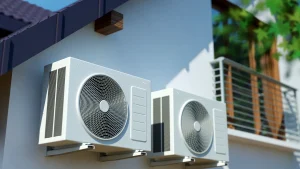As the scorching summer temperatures set in, keeping our homes cool becomes a top priority. However, running air conditioners and cooling systems can lead to a significant increase in energy consumption and utility bills. The good news is that there are several energy-saving strategies you can implement to beat the heat without breaking the bank. In this blog post, we will explore valuable tips to cool your home efficiently and save energy during the summer months.
Utilise Ceiling Fans
Ceiling fans are an excellent way to circulate air and create a cooling effect without consuming much energy. By using ceiling fans in conjunction with your air conditioner, you can raise the thermostat setting by a few degrees while still feeling comfortable. Remember to turn off fans when leaving a room, as they cool people, not spaces.
Optimise Your Thermostat Settings
Set your thermostat at the highest comfortable temperature during the summer. For every degree you raise the thermostat above 78°F (26°C), you can save a significant amount on cooling costs. Consider investing in a programmable or smart thermostat, which allows you to schedule temperature adjustments based on your daily routine, ensuring the system isn’t running unnecessarily when you’re not home.
Seal and Insulate
Properly sealing and insulating your home can significantly reduce energy waste. Inspect doors, windows, and any potential air leaks around the house. Seal gaps and cracks with weatherstripping and caulk. Additionally, ensure your home is well-insulated, as this helps maintain a consistent indoor temperature and minimises the load on your cooling system.
Use Window Coverings
Windows can be a significant source of heat gain during sunny days. Utilise window coverings, such as blinds, shades, or reflective films, to block out the sun’s heat and keep your home cooler. Closing curtains during the hottest parts of the day can make a noticeable difference in indoor comfort.
Maintain Your Cooling System
Regular maintenance of your cooling system is vital for efficient operation. Change air filters regularly to ensure proper airflow, clean the condenser coils, and check for any refrigerant leaks. Schedule annual maintenance with a professional HVAC technician to keep your cooling system in top shape.
Opt for Energy-Efficient Appliances
When it’s time to upgrade your cooling equipment, opt for energy-efficient models with a high SEER (Seasonal Energy Efficiency Ratio) rating. Energy-efficient air conditioners consume less power while delivering optimal cooling performance, resulting in long-term cost savings.
Utilise Natural Ventilation
During cooler evenings and early mornings, take advantage of natural ventilation. Open windows and doors to let in fresh air and allow hot air to escape. Position fans strategically to facilitate air movement throughout your home.
Minimise Heat-Generating Activities
Many household activities can contribute to indoor heat. During the hottest parts of the day, avoid using heat-generating appliances such as stoves, ovens, and clothes dryers. Opt for outdoor cooking or use a microwave instead. Additionally, consider line-drying clothes to avoid unnecessary heat build-up indoors.
Create Shade Outdoors
Strategically planting trees and shrubs around your home can create natural shade, reducing the amount of direct sunlight that enters your living spaces. This not only helps keep your home cooler but also contributes to a greener and more environmentally friendly landscape.
Consider Zoning Systems
If your home has multiple levels or rooms with varying cooling needs, a zoning system can be an energy-efficient solution. Zoning allows you to control the temperature in different areas independently, optimizing comfort and avoiding cooling unoccupied spaces.
Conclusion
Staying cool during the summer doesn’t have to be an energy-intensive and costly endeavour. By implementing these energy-saving tips, you can keep your home comfortable while reducing your environmental footprint and utility expenses. From optimising thermostat settings and utilising ceiling fans to ensuring proper insulation and regular maintenance, these simple steps can make a significant impact on your summer cooling efficiency. Embrace these practices and enjoy a cool, comfortable, and energy-efficient home all summer long.







